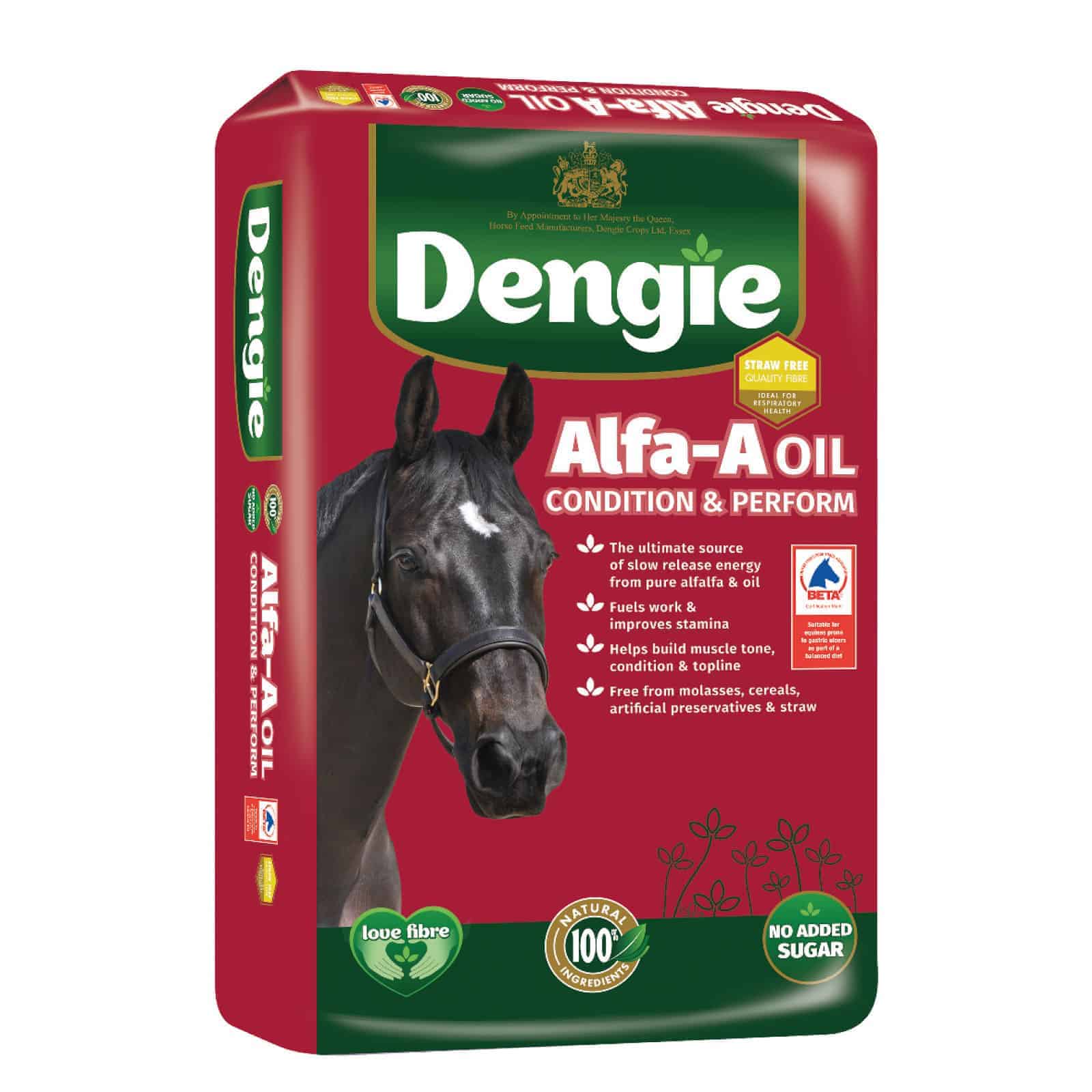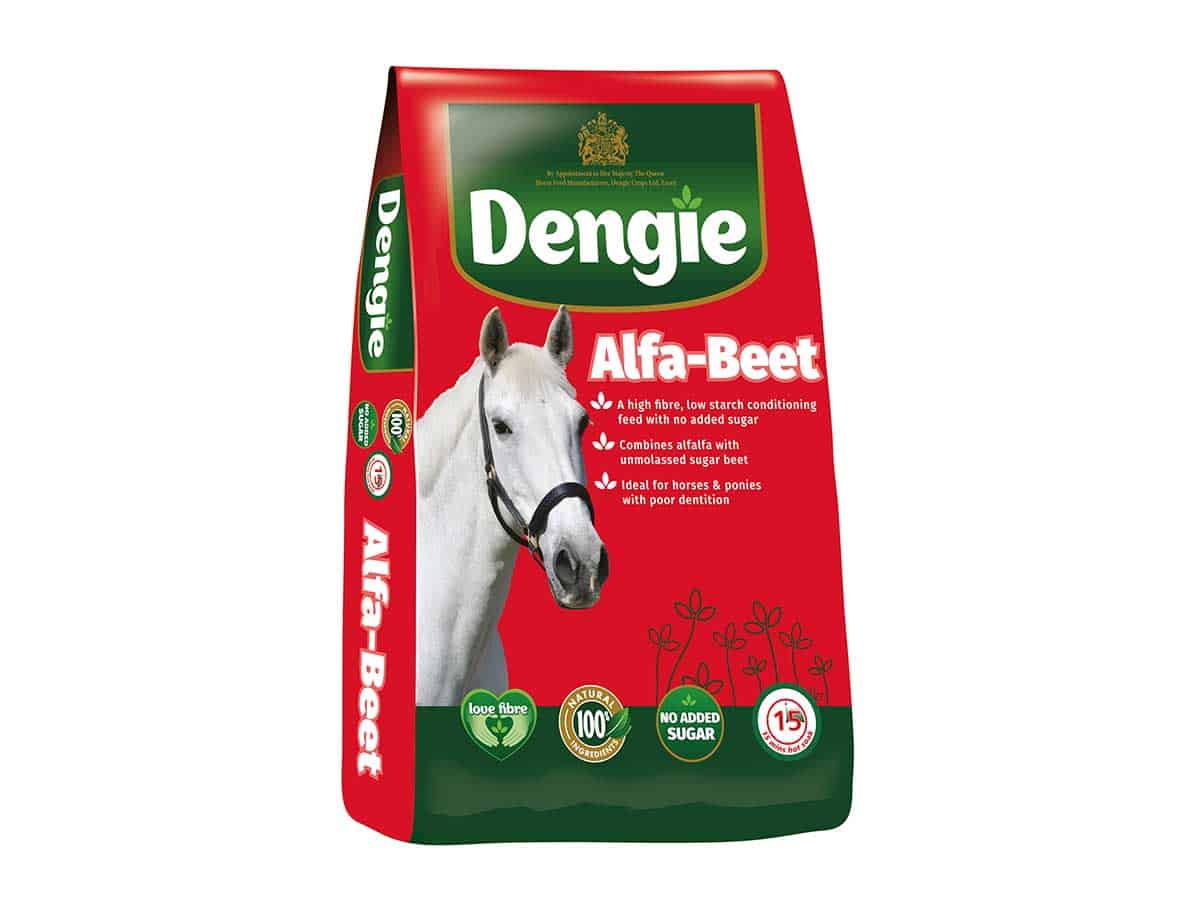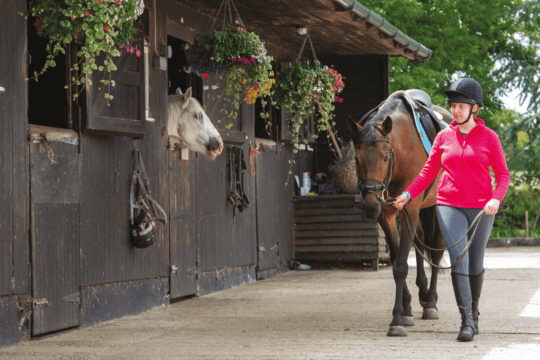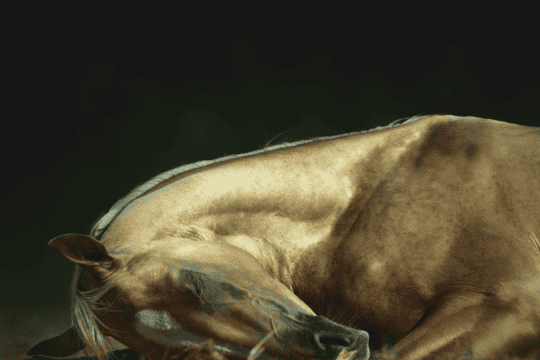Can you really compete your horse on a fibre-only diet? Dengie explains how a diet based on fibre could benefit his digestive health and performance

At whatever level you compete your horse – and no matter how hard you work him – fibre should be the foundation of his bucket ration. Not only is fibre essential for digestive health, but it also provides a whole host of nutrients. Here we provide just some of the reasons why you should think fibre first in your horse’s bucket feed. All you need to do is pick the right feed for him.
Fibre for energy
Often undervalued, fibre can provide a significant amount of energy for a working horse. The amount of energy supplied depends on the digestibility of the fibre source, which is influenced by plant type, environmental conditions and maturity at harvest. The more mature a plant, the less digestible it’ll be and the less energy it’ll provide. Straw is a particularly low-energy fibre for this reason, making it fantastic for good doers but not as useful for a performance horse with a higher energy requirement.
Alfalfa, on the other hand, provides a higher calorie content – and its energy content can also be boosted by additions and coatings. A perfect example of this is Dengie Alfa-A Oil, which combines pure alfalfa with a rapeseed oil coating. Providing 12.5MJ/kg digestible energy, it offers as much energy as a competition mix or cube, but without the high levels of starch they typically contain. Based entirely on slow-release energy sources, Alfa-A Oil is particularly useful to provide stamina and condition, without the fizz – both of which are fundamental to your horse’s performance.
Fibre for digestive health
It’s well documented that fibre is vital for the digestive health of the horse. Low-fibre diets, combined with higher starch rations, are linked to loose droppings, an increased risk of colic and gastric ulcers. When it comes to ulcers not all fibre is the same and research has shown that alfalfa as a fibre source is a superior buffer to acidity in the digestive tract. Feeding a double handful of a chopped, alfalfa-based fibre feed in the 20-25 minutes before you ride is recommended to help prevent acid splash in the non-glandular region of your horse’s stomach. The fibre makes sure his stomach isn’t empty and suppresses the movement of the acidic contents when he moves.
Competing inevitably means a disruption to your horse’s diet, whether in his usual hay ration or a lack of grazing time. Getting your horse used to a partial hay replacer, which is easy to transport, can be one way to avoid a total diet change. You can bring the paddock into his stable with Dengie Pure Grass and Pure Grass Pellets. Dengie Pure Grass combines precision dried grasses with nothing else added, while Pure Grass Pellets condense the dried grasses into a pelleted form that should be fed soaked. Both products can be fed ad-lib to replace your horse’s usual forage ration.
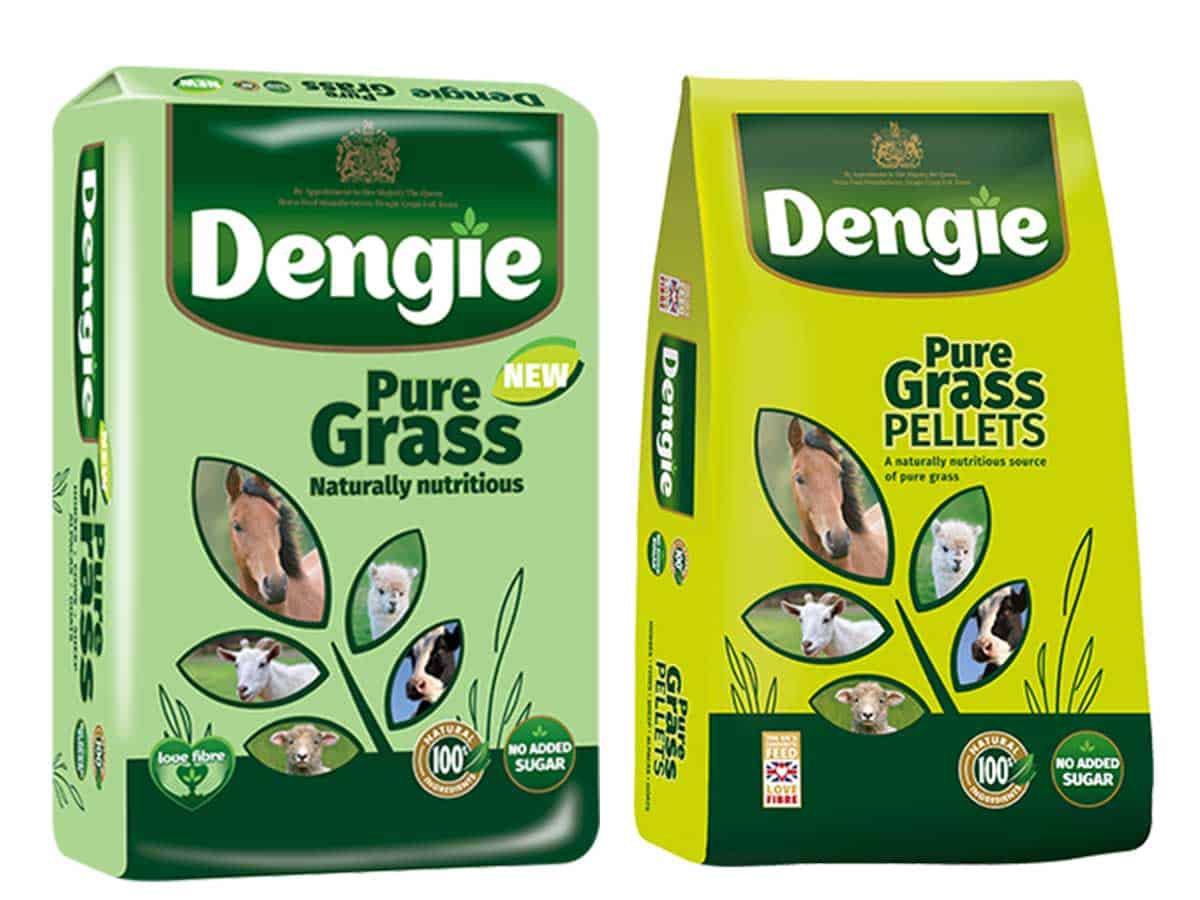
Fibre to supply protein
We all know that protein’s vital for growth, renewal and repair. When it comes to the competition horse, this translates to strength and muscle condition. However, it’s important to understand that nutrition isn’t the only piece of the puzzle and you’ll also need to focus on fitness and training to build your horse’s strength.
Having sufficient protein in his diet is important for building muscle, but it’s not just the amount of protein that matters, but the quality as well. Protein is made up of building blocks called amino acids. Some of these must come from the diet, which are called essential amino acids. Of these, lysine is particularly important because it’s a limiting amino acid – if a horse has insufficient lysine then protein synthesis, and therefore muscle development, is limited.
Your horse will get protein from a variety of sources, including grass, forage and his bucket feed. Some ingredients, such as alfalfa, are particularly abundant sources of protein. Alfalfa typically supplies 1.8 times more lysine than average hay, making it a valuable addition to your horse’s ration to help promote muscle development. All of Dengie’s Alfa-A range of fibre feeds are based on pure alfalfa and up to 500g per 100kg bodyweight can be fed daily.

Fibre for hydration
Hydration is key for health and performance. Both water and electrolytes are required to keep your horse hydrated and an electrolyte supplement should be a daily addition to your horse’s ration if he’s in medium to hard work.
Using a fibre mash, such as Dengie Alfa-Beet, which combines alfalfa and unmolassed sugar beet, can also be helpful. As a soaked feed, Alfa-Beet carries water into the digestive tract and, being so highly digestible, releases it readily to aid hydration. Similarly, because Alfa-Beet is a very palatable fibre mash, it’s also useful for masking the taste of electrolytes or water when travelling and competing.
Fibre and respiratory health
Stabling and travelling horses in confined spaces can increase their exposure to respirable particles, which can be detrimental to their respiratory health. Mould is one of these respirable particles and even hay and straw that look and smell great to us can still contain a significant mould count.
Dengie Performance Fibre combines precision dried grasses and alfalfa with a light molasses and oil coating with added spearmint oil. As both the grasses and alfalfa are precision dried, Performance Fibre provides an exceptionally clean fibre source for your horse and can even be used as a partial forage replacer. Performance Fibre is a highly palatable fibre feed that’s useful for tempting the fussy feeder, too, which can be a problem in fit horses who are regularly travelling and competing.
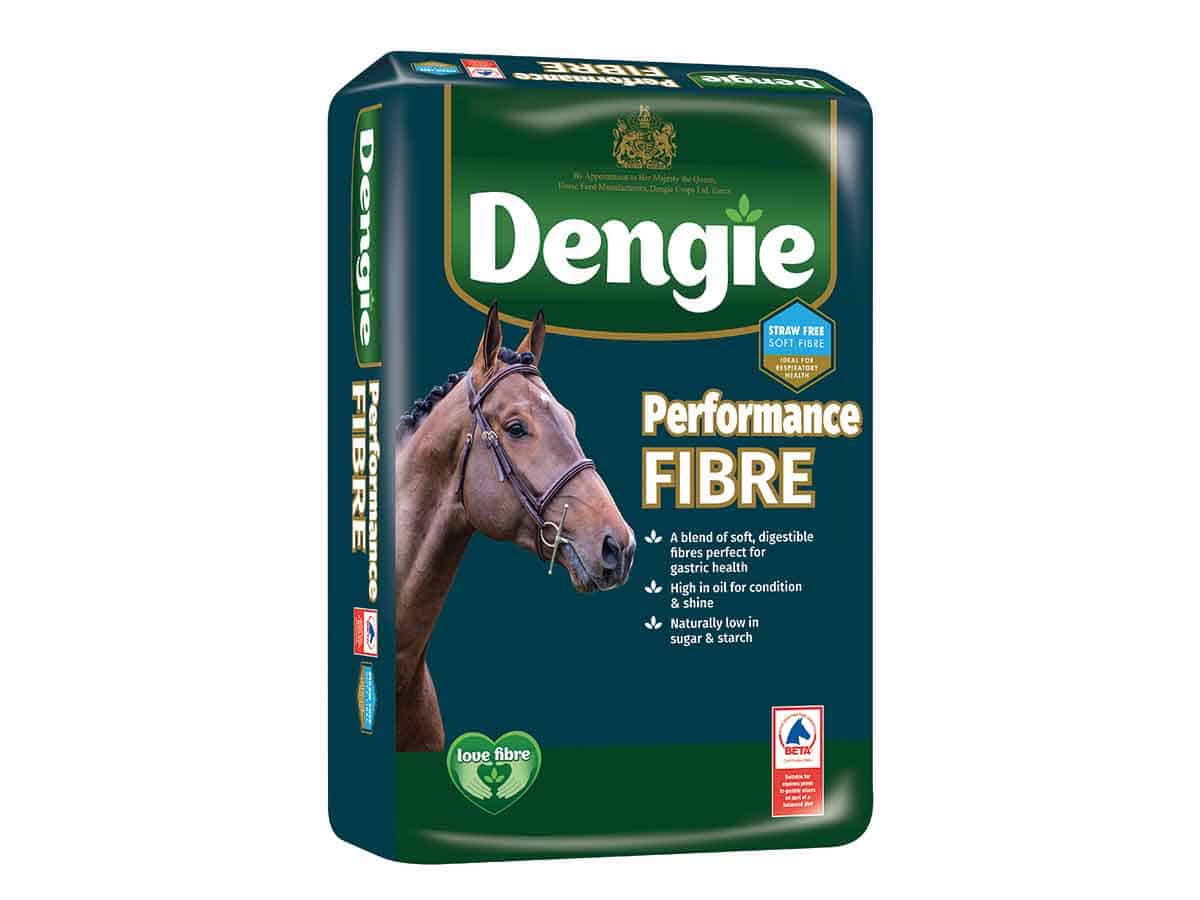
For more information and feeding advice, contact the Dengie feedline on 01621 841188 or visit dengie.com




